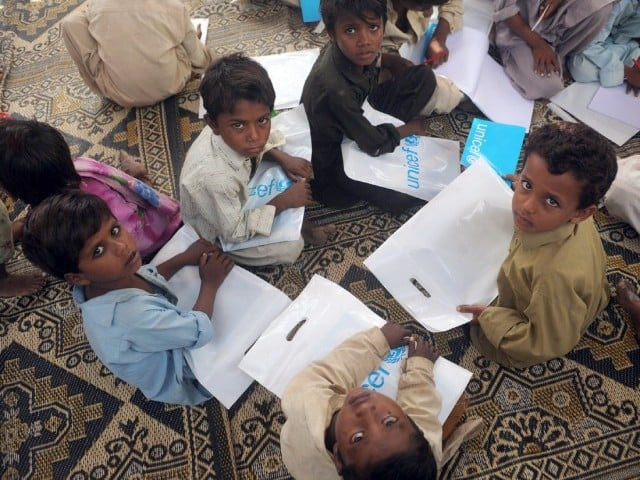Unprecedented: World population to touch 7 bn
Pakistan has one of the fastest growing populations.

The UN’s population division foresees a global population of 9.3 billion people in 2050, and more than 10 billion by the end of this century. Much of this increase is expected to come from high fertility countries, of which nine are in Asia. Today, 60 per cent of the world’s population lives in Asia. Currently 4.2 billion, it is expected to peak around the middle of the century to 5.2 billion in 2052, before it begins to slowly decline.
Speaking to The Express Tribune, UNFPA Country Director Royan said, “Looking at the broader comprehensive challenges countries and regions are facing, the report will help governments plan their own policies.” He said Pakistan has one of the fastest growing populations with a growth rate of 2%. “There are 180 million people and the population is likely to increase to 350 million by 2050. “With the doubling of population there would be a doubling of poverty.” Pakistan has a very active and increasing young population, he said. “Pakistan being vulnerable to natural and manmade disasters has to suffer more as most of the national resources have to be diverted towards humanitarian assistance.”
Globally, people are younger and older than ever before. In some of the poorest countries, high fertility rates hamper development and perpetuate poverty, while in some of the richest countries, low fertility rates and too few people entering the job market are raising concerns about prospects for sustained economic growth and the viability of social security systems. While labour shortages threaten to stymie the economies of some industrialised countries, unemployed would-be migrants in developing countries are finding more and more national borders closed to them and the expertise they may have to offer. However, there is much to celebrate in world population trends over the last 60 years, especially, average life expectancy and the fact that infant deaths plunged in the past five years. Immunisation campaigns have reduced the prevalence of childhood diseases worldwide and fertility has declined by more than half, from about 6.0 to 2.5.
Published in The Express Tribune, October 26th, 2011.



















COMMENTS
Comments are moderated and generally will be posted if they are on-topic and not abusive.
For more information, please see our Comments FAQ